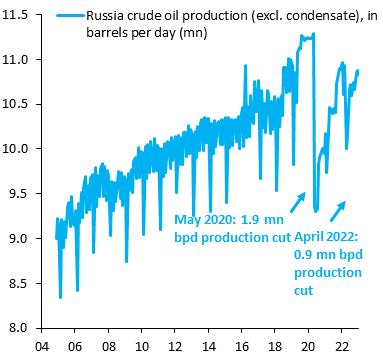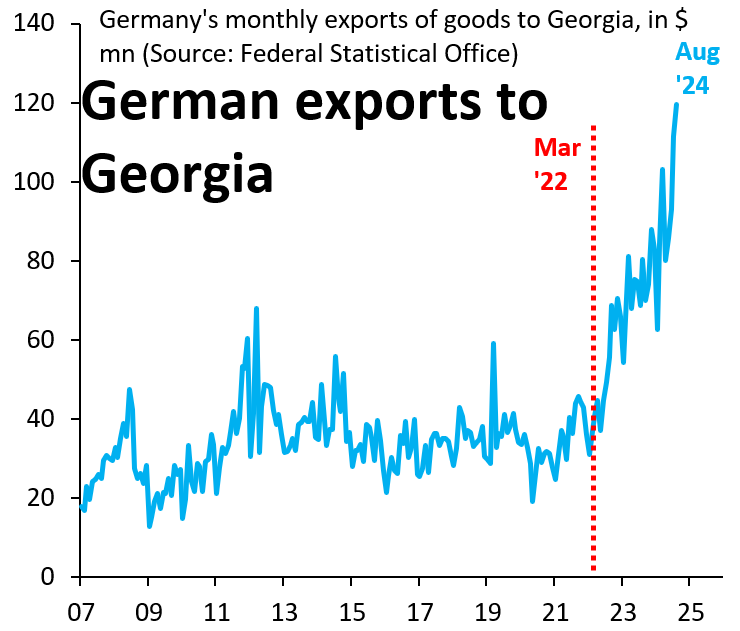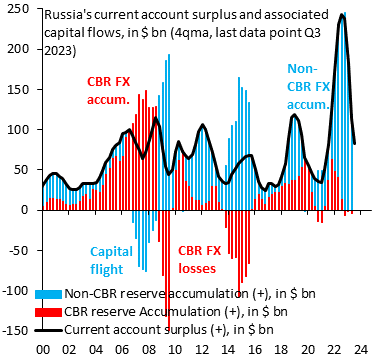Greek shipping oligarchs and the EU
1. Russia in H1 '23 exports more oil than ever (blue). That is possible only thanks to Greek-owned tankers (red), who - since Russia invaded Ukraine - stepped in to transport Russian oil big time. Greek ships are 50% of total tanker capacity...
1. Russia in H1 '23 exports more oil than ever (blue). That is possible only thanks to Greek-owned tankers (red), who - since Russia invaded Ukraine - stepped in to transport Russian oil big time. Greek ships are 50% of total tanker capacity...

2. Greek shipping oligarchs shifted their tankers to help Russia after the invasion. Greek ships were 33% of total tanker capacity out of Russian ports prior to the invasion. Since then, this number is up to 50%. This means Putin's war machine depends critically on Greek ships... 

3. Russia exports 83% of its shipborne oil out of Black Sea (lhs) and Baltic (rhs) ports. Greek-owned oil tankers make up 75% of tanker capacity out of Black Sea ports and 60% out of Baltic ports (blue). There is NO Russian war machine - no war in Ukraine - without Greek ships... 

4. So the EU is in a unique position to curtail Putin's money machine. But it hasn't done that. Instead, it's allowed itself to be lobbied by Greek shipping oligarchs, who first opposed the G7 price cap and - when it became inevitable - undercut it by lobbying for a high $60 cap. 

5. Greek lobbying of the EU rests on two points. The first is: if Greek ships don't transport Russian oil, someone else will. This argument is total nonsense, as no one else has the capacity that Greek shipping oligarchs have. There's no alternative to Greek ships for Russia... 

6. The second point Greek lobbyists make: if the G7 cap is lowered from $60, Russia will retaliate with production cuts. This point has also been exposed to be total nonsense. Russia desperately needs cash for its war. Cutting the cap to $50 won't see any Russian retaliation... 

7. By shifting so much of their tankers to help Russia, Greek shipping oligarchs have - in a commercial sense - aligned themselves with Putin. There is NO reason for the EU to listen to their lobbying. The EU needs to step up and push for a lowering of the G7 cap to at least $50. 

• • •
Missing some Tweet in this thread? You can try to
force a refresh















